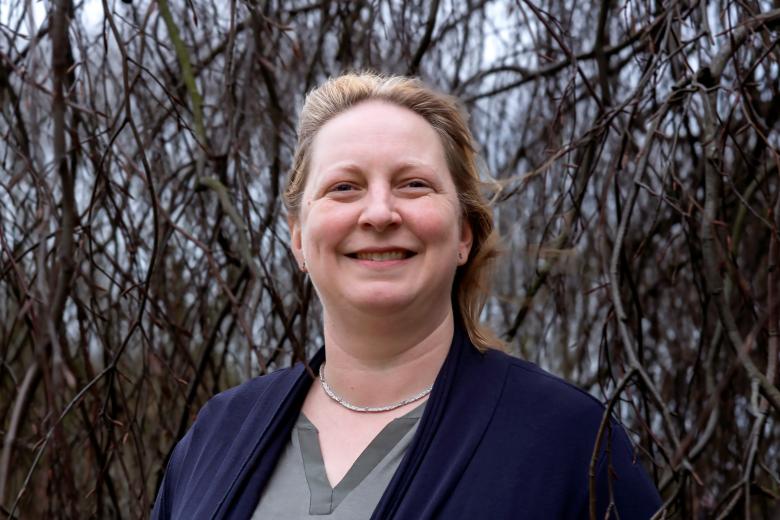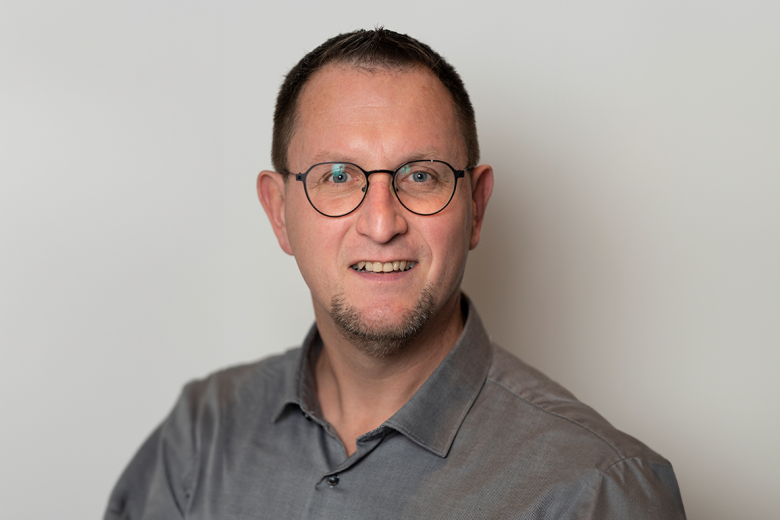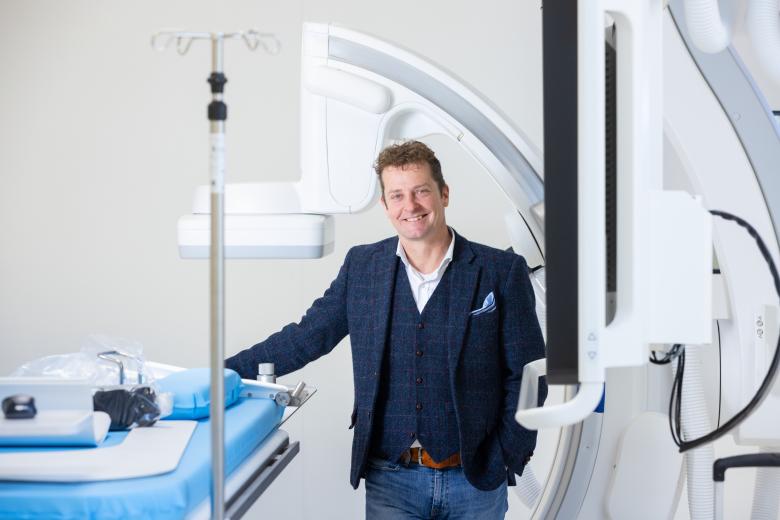Renaud Jolivet: from cosmology to the brain
Professor of Neural Engineering and Computation, Renaud Jolivet, gave his inaugural address on September 15. Jolivet researches fundamental questions about the workings of the brain at the Maastricht Centre for Systems Biology of the Faculty of Science and Engineering.
Renaud Jolivet has always been drawn to nature's big questions. He majored in physics because he wanted to work on cosmological and astronomical enigmas. "During my studies, these fields of science did not prove to be a good fit; instead, I became interested in the interface between physics and biology", he says. While looking for a PhD position, he stumbled into neuroscience. Jolivet changed his focus from the vast universe outside of us to the constrained area inside our skulls, from the billions of stars in a galaxy to the billions of cells in the brain. Despite the change of subject, he still works on one of the most important unanswered scientific questions: “How does the seat of our consciousness, our brain, function?”
Perfect place
Jolivet worked at the University of Geneva and the physics research centre CERN when he was asked to deliver a lecture at the Maastricht Centre for Systems Biology (MaCSBio). Here he found something he was lacking in his Swiss research. “MaCSBio has expertise in metabolic modelling (modelling the metabolism through mathematics), something that is not very common in neuroscience research. Furthermore, CERN, which studies elementary particles, is not the perfect place for brain research. So, moving to Maastricht felt natural because it benefited my research and my career.”
In Maastricht, the young professor will focus on three lines of research that involve neural engineering as well as computational neuroscience. “We are working on a brand-new kind of neuronal brain interface that might one day help people with epilepsy. The second area of research, which I began at CERN, examines novel approaches to brain imaging that take advantage of the physics of both MRI and positron emission tomography. The third line of research involves creating mathematical models of how the brain processes information. We especially look at the role of non-neuronal cells. These cells make up half of our brain; nonetheless, we know only little about them.”
Half a century
Back to the big question regarding how the brain works: does Jolivet believe he will see it answered? “Although its concepts are not hard to understand, biology has its own form of complexity. The brain is such a heterogeneous organ, made up of billions of interacting cells, that I am not sure if we have the mental framework or the tools needed to understand it. We do not have a theory of how these cells work in concert. Nonetheless, numerous new and powerful techniques for studying the brain have become available in recent decades, ones that my colleagues could only dream about 20 years ago. I believe this will allow us to answer this question in around 50 years, giving me the chance to experience it during my lifetime.”
Thinking big
Individual academic groups across the world do the majority of brain research today. This, according to Jolivet, will not serve to address the major question. "Because the brain and brain research are so complex, we need to change the way research is organised to tackle the problem. Individual research groups are reaching their limits thus, we must collaborate." Jolivet loves how nuclear scientists transitioned to large-scale research at CERN, where research groups from all around the world work together as one.
The European project EBRAINS is taking the initial step towards intensifying research collaboration. Jolivet chairs the Science and Technology Committee for the project. "EBRAINS is the legacy of the Human Brain Project, which attempted to create a brain model. In contrast to the Human Brain Project, EBRAINS primary focus is not on research but rather on creating a large-scale infrastructure for brain research."
Overall, brain research is reaching the critical mass required to ultimately understand how the brain functions. Jolivet and his colleagues at MaCSBio will contribute to this effort.
Biography
- 2001-2005 PhD in Computational Neurosciences, EPFL, Switzerland
- 2006-2015 Postdoc positions in Switzerland, Japan and the United Kingdom
- 2016-2021 Titular Professor and Senior Lecturer, University of Geneva and CERN, Switzerland
- Since 2021 Full Professor, Maastricht University
- Since 2023 Chair of the EBRAINS Science and Technology Committee
- 2023 Winner of the André Mischke YAE Prize for Science and Policy
Also read
-
Working at UM: “a life-changing experience”
"I am proud that our new Circular Plastics group published its first completely in-house research," Kim Ragaert says. She founded the research group three years ago, when she moved to Maastricht. Her work has laid the foundations for many innovations in the field of plastic recycling, and she is...

-
How does the universe taste?
Gerco Onderwater investigates the flavour of the universe while guarding the flavour of the Maastricht Science Programme. On 31 May, during his inaugural lecture, he provided a pre-taste of his work in Maastricht.

-
Bridging the gap between technology and clinical practice
Lee Bouwman, a vascular surgeon and endowed professor of Clinical Engineering, specialises in the implementation of groundbreaking healthcare technologies. The key to success, he says, lies in the collaboration between engineers and clinicians. This approach has already resulted in a range of...
